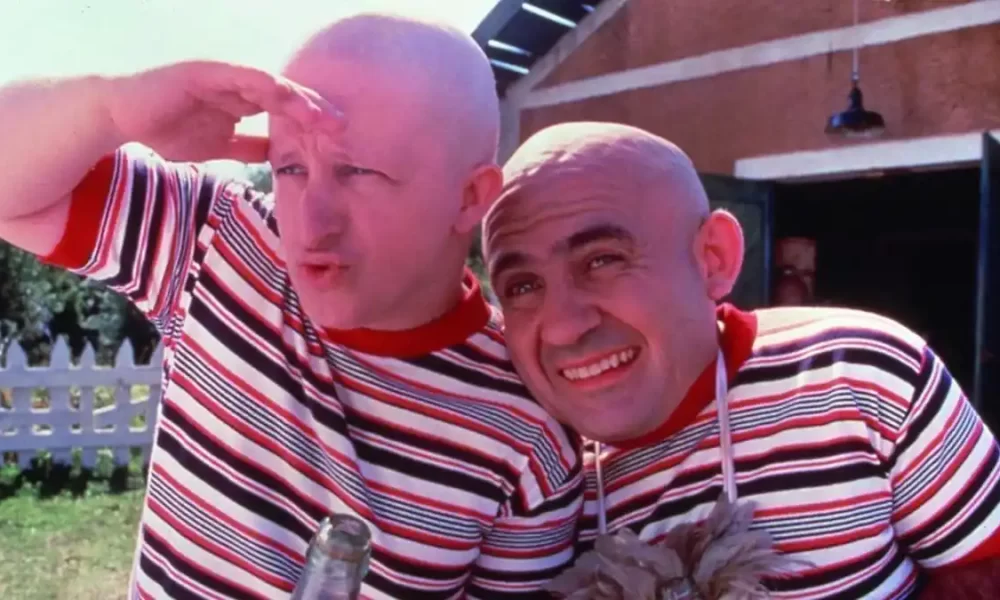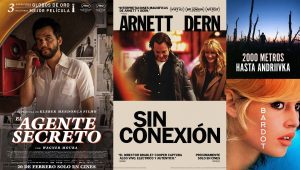
Comedy is one of the most deeply rooted genres in Spanish cinema. Although from certain points of view Spanish cinema is related to the remembrance of the Civil War and its consequences, the reality is that comedy has always been the queen of our cinema, the one that has swept the box office in every decade without exception, since Extended y haystacks until the Stream of Safe Santiago or the most recent saga of regional surnames.
Perhaps, except in those of the master and inimitable Luis Garcia Berlangait is difficult to find resounding and indisputable masterpieces among them… but it is also undeniable that the society of their time is reflected in a purer and more vivid way in them, so that their approach can be useful to us to know what everyday life was like at the time .
It would be impossible to make a selection of the best spanish comedies without committing endless injustices, so we are going to take a risk with a selection of what would be 5 ideal comedies to watch on a Sunday, that time of the week where we look for the last minutes of fun but also reflection before facing a new week and its inescapable tasks.
Let’s go there, see what you think.
Welcome Mr Marshall (1953)
We’re starting off shorts because choosing a single film from Berlanga’s filmography is a sin in itself. But if we speak good doses of humor and reflect his time, probably welcome mr marshall be the most suitable.
Berlanga and Juan Antonio Bardem they managed to turn what was going to be a commercial vehicle for the singer Lolita Sevilla in a comedy where laughter is both on the surface and in the subtext of the narration, in those wishes of the inhabitants of a small town waiting for US economic aid to escape, even for a few days, from the imposed austerity of the time.
Despite Joseph Isbert I was not very convinced of wanting to participate in this project of those two young people who were making their feature film directing debuts, their professionalism was so great that their character has managed to go down in posterity in an unforgettable way.
Women on the Verge of a Nervous Breakdown (1988)
If Berlanga managed to show that unwanted Spain through his satires, once democracy arrived Pedro Almodovar He showed like nobody else the new society with a longing for freedom that had been born after the transition.
Women on the verge of a nervous breakdown It is a situation comedy that fully transfers the codes of the genre to the Spanish heritage; where there are cocktails, luxurious lounges and high passions, here we have gazpachos, unbridled love and the new Madrid bourgeoisie as an example of Spanish society.

With a perfectly recognizable aesthetic and the captivating involvement of the actors with the particular universe of the director, this film gave rise to the international recognition of a filmmaker who today continues to arouse admiration and expectation with each new release, although frequenting comedy much less.
Belle Epoque (1992)
Perhaps as a response to those who think that there is too much Civil War in Spanish cinema, perhaps as a tribute to the generation that saw its republican desire frustrated, Fernando Trueba got with Belle Epoque a portrait, more idealized than real, of that Spain they yearned for.
The magic of an ensemble cast that shared several weeks of shooting in optimal conditions and in which two generations of actors were mixed in perfect rapport, breathed into this film an optimism and inner light that are rarely found, not only in Spanish cinema, but in the whole world.
Sexual tension and comedy in a country atmosphere and freedom by a young man who is attracted by all the very different daughters of those who welcome him into his home make up this portrait of the Spain that, according to its authors, could be.
The miracle of P. Tinto (1998)
Every list has an exception that enforces the rule and this one of ours is going to be The miracle of P. Tinto.
Surreal comedy (the other option was, alas, Sunrise, which is no small thing) we have chosen this ribbon Javier Fesser as representative of Spanish comedy because it does not resemble any other, neither before nor after. And that, in a certain way, also represents at least the good moment film production was going through in Spain after the appearance of private television channels and the development of several important production companies and distributors.
Surreal, unpredictable, unique… but without giving up a very recognizable Spanish costumbrismo, the humor of The miracle of P. Tinto it is as naive as its characters are disconcerting, who seem to live in a world so innocent that even the knowledge of sex to procreate is an arcane to discover naively.
Spanish Movie (2009)
And so that we have a round list, we cannot fail to include a metapelículaexcuse the word, a comedy that parody and self-reference the Spanish cinema of its time embodied by a host of the best-known comedians.
the underrated Javier Ruiz Caldera picks up the North American trend of self-referential parodic films, the well-known ones and here titled whatever as you can o crazy academy of whatever and reliably transfers it to the imaginary and the characters of Spanish humor. And in case the origin of the idea was not clear, with the Leslie Nielsen participating.
out to sea, Pan’s Labyrinth, The orphanage, The others, Return… all the cinema of a commercially splendid era is parodied in this film that, indeed, is not a masterpiece, but that had the nose to host a whole coming generation of comedians since Carlos Areces a Joaquin Reyes o Alexandra Jimenez and mix them with Nielsen itself and even television Bert Romero y little boy of the road, the latter one of the most impressive humorous phenomena in this country, integrated in such a way in popular culture that we can see it in Chiquito slot machines or even in Chiquito traffic lights. How?
conclusion
Yes, the list has fallen short and there are obvious faults such as the famous one mentioned by Joseph Louis Ropethe masterpieces of Berlanga Placid y The executionerthe always stimulating and bitter Alex de la Iglesia as The crime of Ferpecto, Community, sad trumpet ballad o laughing to deathall the films of Ozores (any of the brothers), the recent saga of the 8 surnamesthe immortal robbery at three of Jose Maria Forqueall the films of Paco Martínez Soria… and so many more.
Our intention has been to highlight a genre that is often underestimated but which, seen up close, gives us a closer archeology of who we are, perhaps much more than those who intend to do so voluntarily. Now it’s your turn to choose the most convenient one and find out which society was showing while making you laugh.

Source: https://www.cinecritico.net/visiones/5-comedias-espanolas-para-ver-un-domingo/


